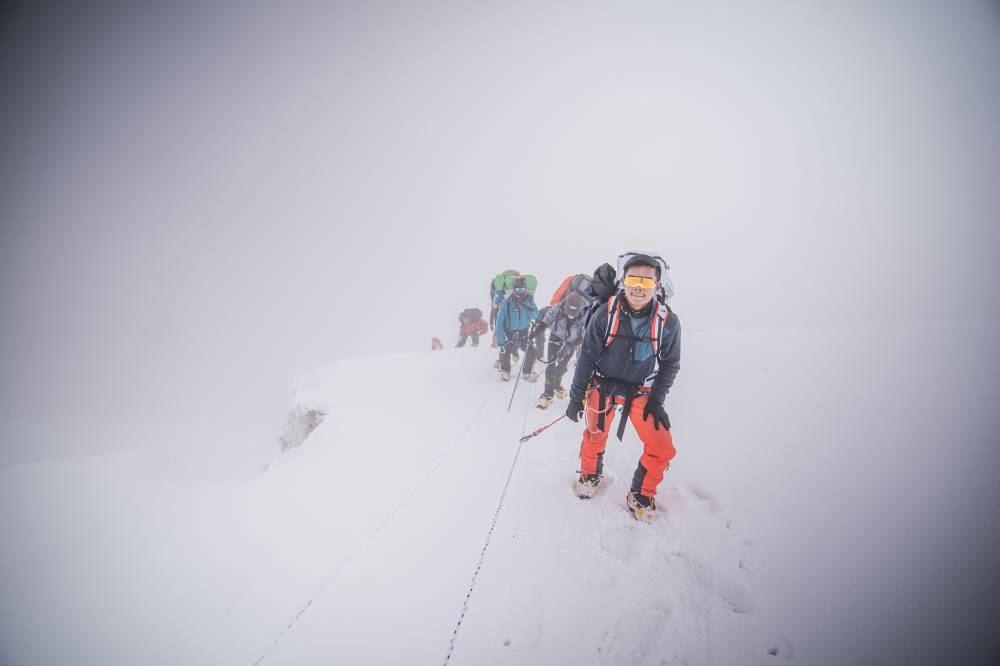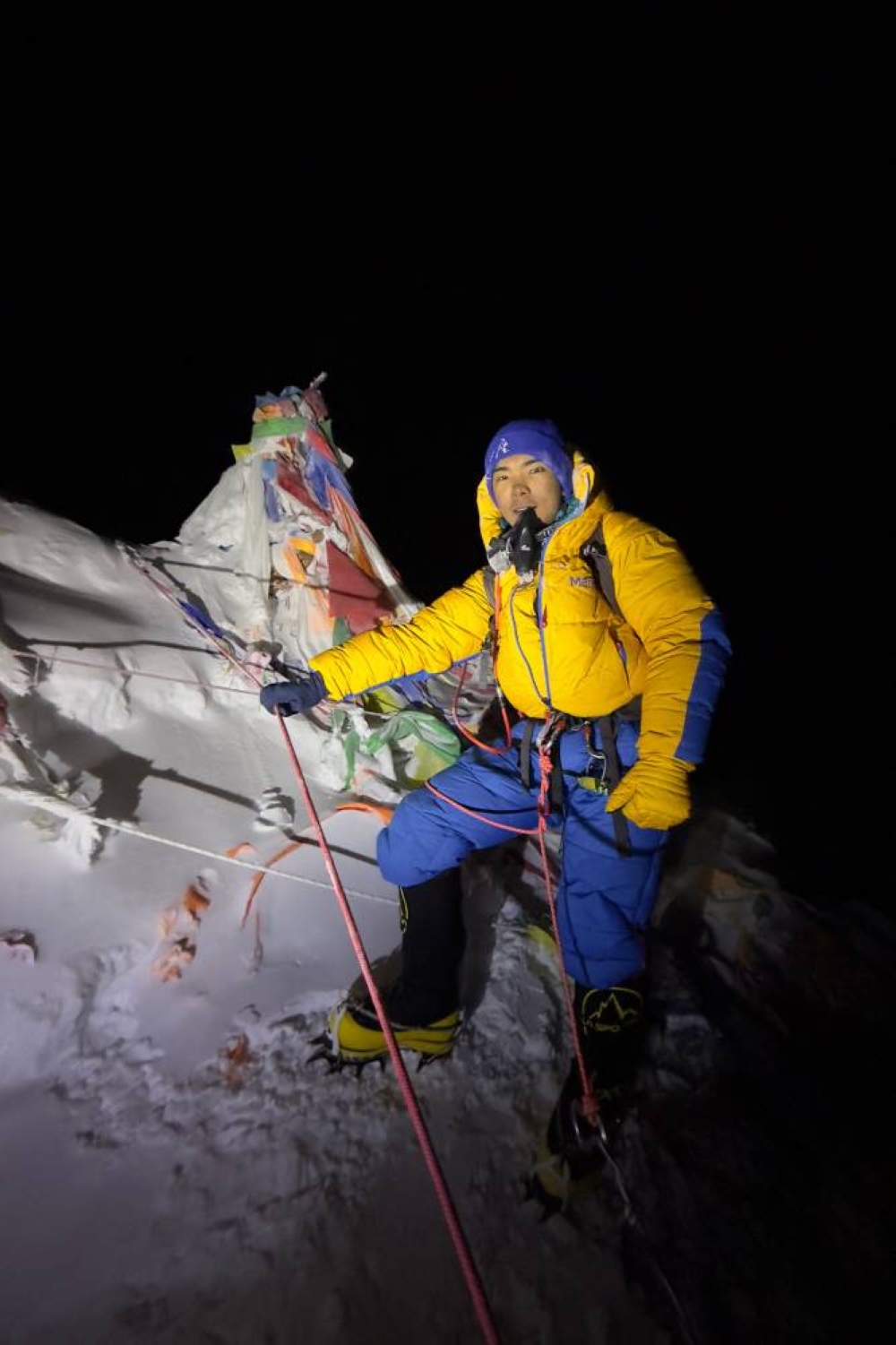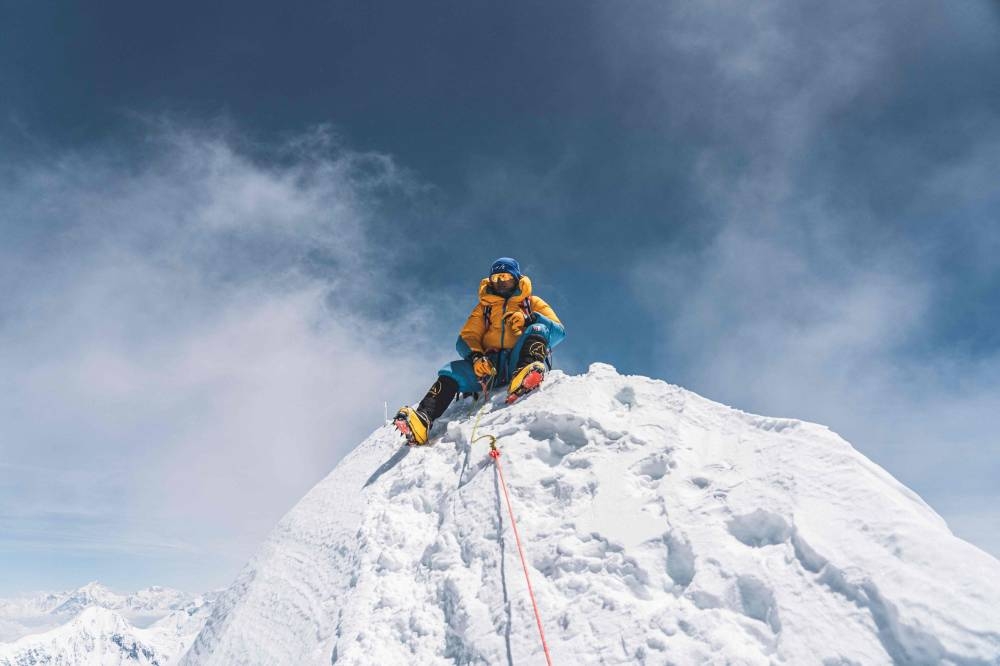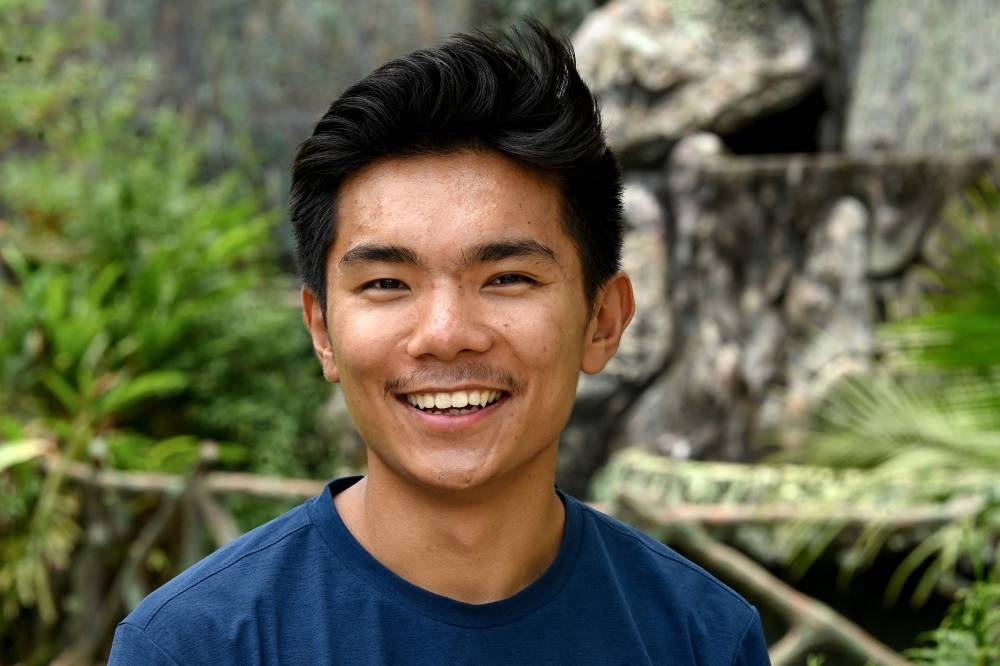At just 18 years old, Nepali mountaineer Nima Rinji Sherpa is on the brink of a remarkable achievement.
With 13 of the world's highest peaks already behind him, he is now one summit away from becoming the youngest person to conquer all 14 mountains towering above 8,000 metres (26,247 feet).
Sherpa, who already holds multiple records from his ascents of dozens of peaks, said he is on a mission to "inspire a new generation and redefine mountaineering".
His final challenge, Shishapangma in Tibet, awaits him next month -- if China issues a permit.
Summiting all 14 "eight-thousanders" is considered the epitome of mountaineering aspirations.
Italian climber Reinhold Messner first completed the feat in 1986, and only around 40 climbers have successfully followed in his footsteps. Many other elite climbers have died in the pursuit.
All of the mountains are in the Himalayas and neighbouring Karakoram range, which span Nepal, China, India and Pakistan.
Reaching each summit requires entering the thin air of the "death zone", where there is not enough oxygen to sustain life for long.
"When I am in the mountains, I may die anytime," Sherpa said. "You need to realise how important your life is."
The young man says the mountains have taught him to stay calm.
"Mentally, I have convinced myself... when I see an avalanche, bad weather, an accident in the mountains I am not in a hurry, I don't get nervous," he added.
"I have convinced myself; this is normal in the mountains. I think this has helped me a lot."
- 'Real value of life' -Hailing from the Sherpa ethnic group, renowned for its mountaineering prowess, the teenage climber is no stranger to the treacherous terrain.
His uncle, Mingma Gyabu 'David' Sherpa, currently holds the record of the youngest person to climb all 14 peaks. He achieved it in 2019, at the age of 30.
His father, Tashi Sherpa, grew up in the remote Sankhuwasabha district, herding yaks before joining mountaineering as a teenager with his siblings.
The entrepreneurial brothers now lead the biggest mountain expedition company in Nepal, Seven Summit Treks, and its sister company, 14 Peaks Expedition.
"I come from a privileged family," the teen climber said. "But going to the mountains has taught me what hardship is, and the real value of life".
Raised in the bustling capital Kathmandu, Sherpa initially preferred to play football.
He was also more interested in filming and photography than following his father's footsteps.
"My whole family is from mountaineering. I have always been near mountaineering and expeditions," he said. "But I never wanted to be myself in mountaineering."
Instead, he would take his camera out to the mountains during school holidays.
But two years ago, he put his camera down to pursue mountaineering, and has since broken records.
In August 2022, Sherpa scaled his first of the 14 peaks, reaching the top of the world's eighth highest Mount Manaslu (8,163 metres) at the age of 16, the first teenager to do so.
The last mountain he scaled was Kanchenjunga in June, again making a record for the youngest to climb the world's third-highest mountain.
"I have learned so many things about nature, the human body, human psychology", he said.
"Everything in the world I learnt from the mountain."
When not in the mountains, the student runs on the treadmill every day and avoids junk food.
"Physically and mentally, you should be very fit for big mountain climbing," his father Tashi Sherpa said, adding he had been helping him prepare for the challenge for years.
"He will inspire newcomers," he added.
Nepali guides -- usually ethnic Sherpas from the valleys around Everest -- are considered the backbone of the climbing industry in the Himalayas.
They carry the majority of equipment and food, fix ropes and repair ladders.
Long in the shadows of their paying foreign customers -- it costs more than $45,000 to climb Everest -- Nepali mountaineers are slowly being recognised in their own right.
The teenager envisions a future where climbing is recognised as a demanding, athletic pursuit for Nepali climbers as well.
"My focus will be to make mountaineering a professional sport," he said.
His hero is Tenzing Norgay Sherpa, the first person to climb the world's highest mountain Everest along with New Zealander Edmund Hillary.
Sherpa considers his idol as big to climbing as Lionel Messi or Cristiano Ronaldo are to football.
"Norgay is someone who is in that league," he said.
But, having seen the impacts of climate change and commercial climbing on the mountains, he is keen on taking a sustainable approach to mountaineering, and intends to study environmental science.
"It's a bigger purpose for what I do," he said.
"When I first started climbing, it was purely for myself," he added.
"But then I realised there is a lot we can do in mountaineering sports, and there are many ways to help the community."

Nima Rinji Sherpa ascends the summit of Mount Everest. AFP/14 Peaks Expedition

Nima Rinji Sherpa at the top of Mount Everest. AFP / 14 Peaks Expedition

Nima Rinji Sherpa at Mount Annapurna. AFP/ 14 Peaks Expedition

Nima Rinji Sherpa poses during an interview with AFP in Kathmandu on August 5. AFP
